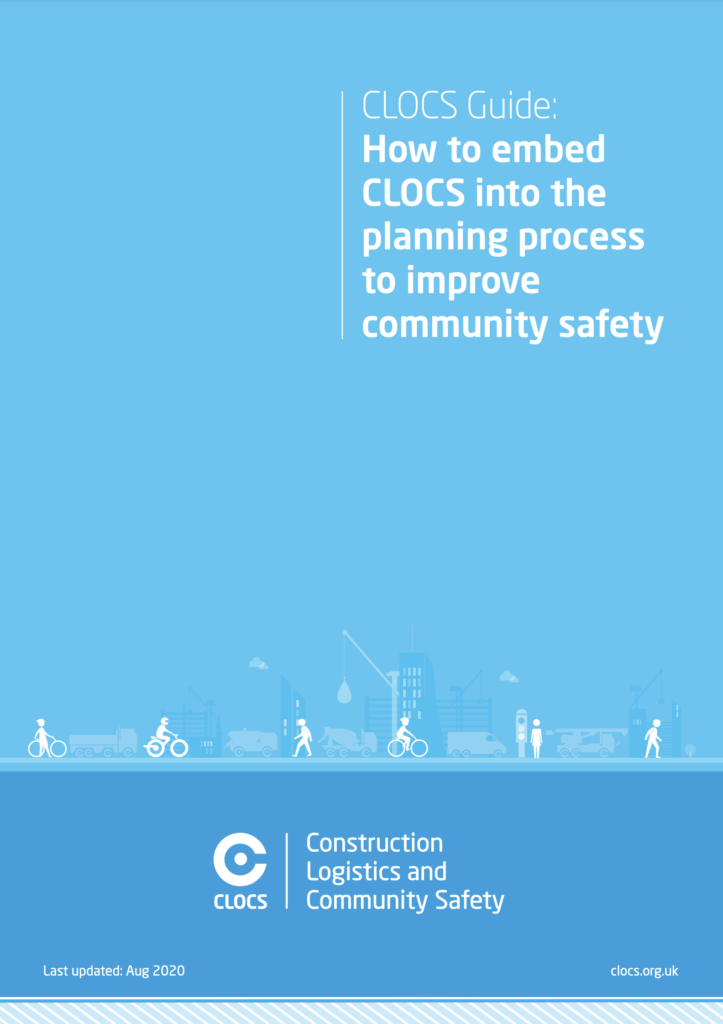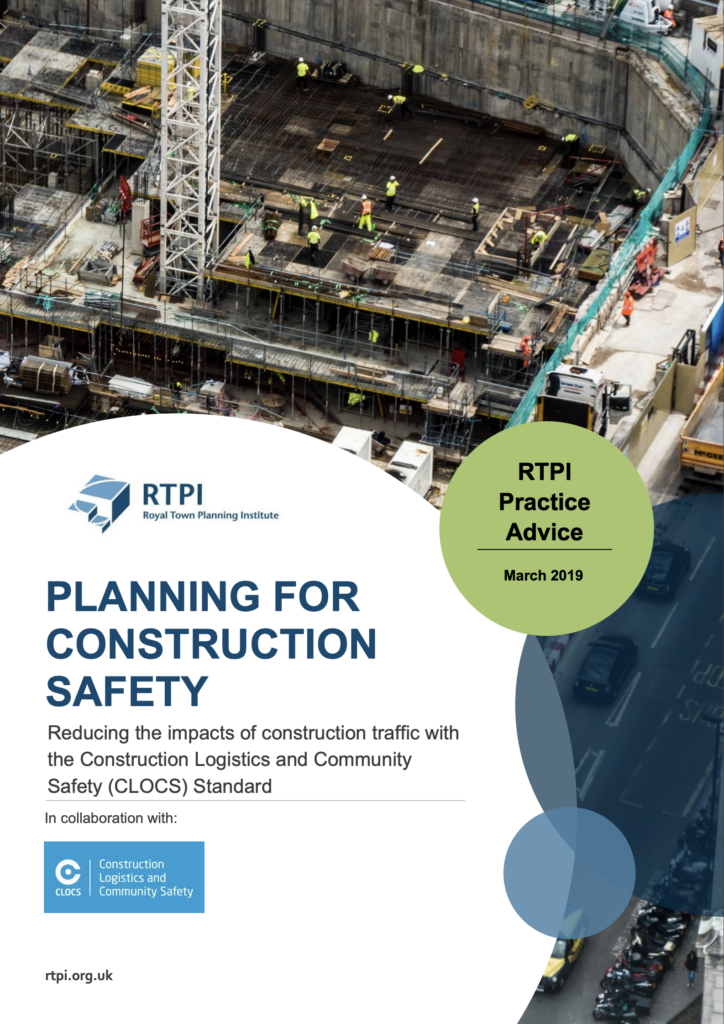A consistent and collaborative approach to construction logistics planning is vital if construction activity is to be conducted safely with minimal risk to vulnerable road users.
Local Planning Authorities can manage this risk and benefit local communities by joining the CLOCS community, stipulating CLOCS compliance as a planning condition from the outset and requiring an outline Construction Logistics Plan as a planning condition.
The benefits for local communities are clear – more efficient construction activity, less congestion, improved air quality and improved public confidence in being able to walk and cycle safely without the worry of risk from construction vehicles.
Benefits of action
- manage the impact of construction vehicle activity and the associated risk, protecting vulnerable road users within communities
- reduce congestion and associated environmental impacts through smarter logistics planning
- reduce complaints from those affected by construction traffic and boost local community satisfaction by providing safer streets for all
- reduce workloads, save resources and provide consistency in construction logistics planning
The following guides have been developed by CLOCS, working with our Regulator Champions, to support planning authorities with their adoption and implementation of CLOCS.
The responsibility for setting safety standards in general around new developments should start with the Planning Authority (in conjunction with the Highway Authority in some cases), and should be proportionate and relevant to the scale of the development or project.
Regulators, specifically planning officers, play a vital and unique role in ensuring that the construction and eventual operation of developments is appropriate and does not have any significant negative effects on the surrounding area.
This document provides guidance and examples to assist

The planning policy context, relating to the traffic impacts of developments, varies across the UK.
There is an important distinction between the transport impacts created by a finished development and those during the construction phase.
There are national variations on whether planners are required to address construction traffic, however there is a common mandate across the UK that all major developments must submit a transport assessment that considers the traffic impacts and safety of a development in its entirety.
This can form the basis of construction specific conditions.



